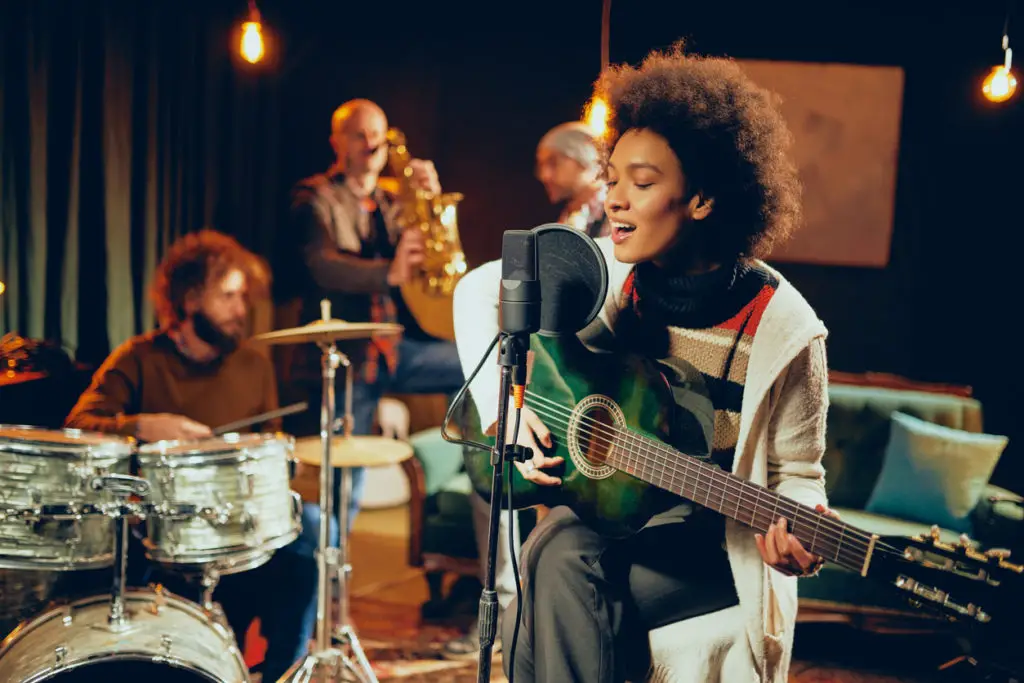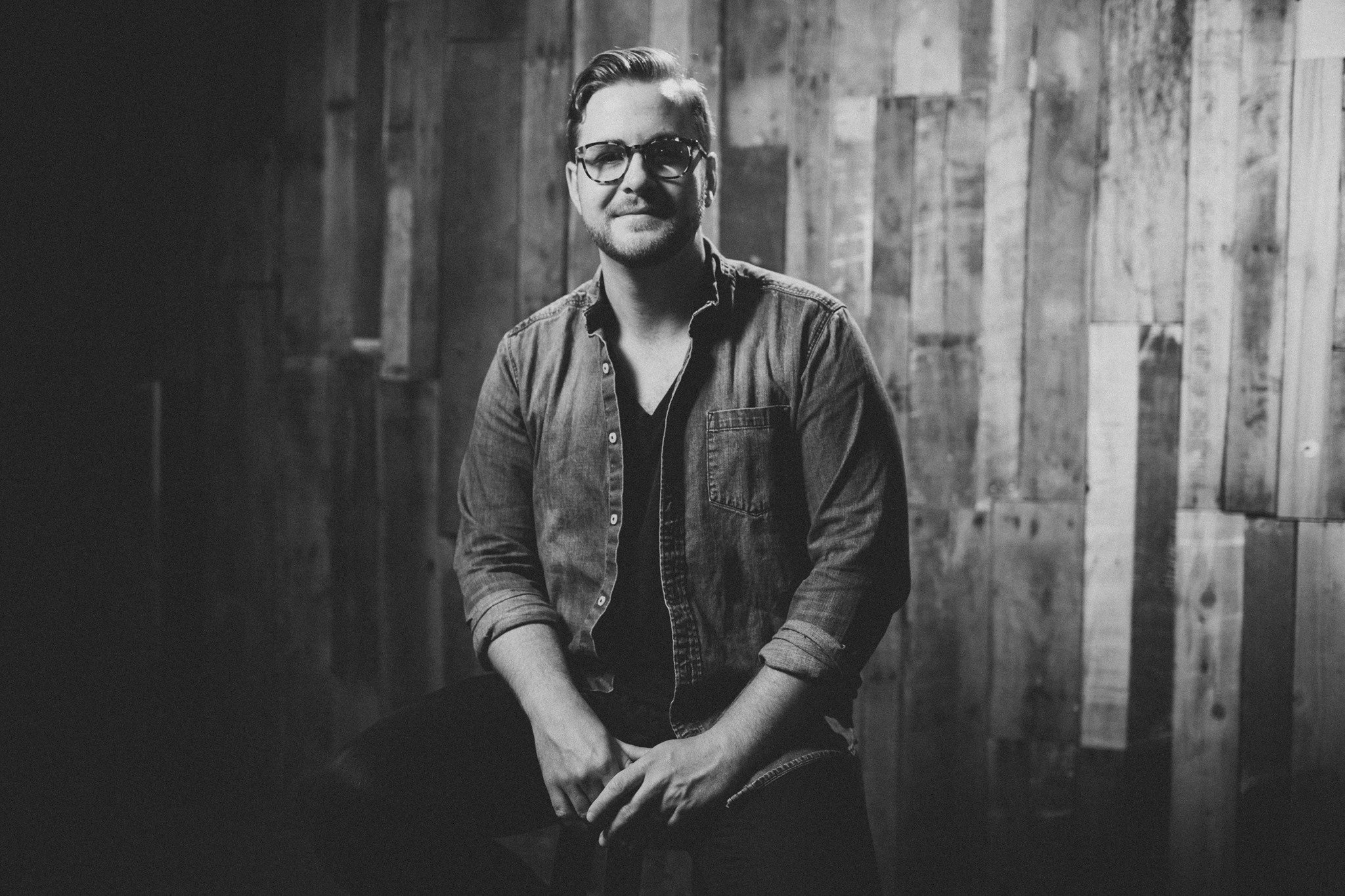If you’re reading this blog, you’re probably wondering how to become a songwriter — and actually make a living writing songs.
Maybe you’re wondering if it’s a realistic goal, or if you even have what it takes to succeed, so let me set your mind at ease.
First, if you’re already writing songs, either for yourself, for others, or a band you’re in, you’re already a songwriter. If you’re serious, it’s important you step into this mindset early.
Because, while it can take a while for you to earn significant money, your efforts are still worthwhile. Don’t let imposter syndrome set in simply because you haven’t yet been paid.
This mindset can be paralyzing and incredibly unfair — it takes time to hone your craft. You need to write a lot of songs. So if you’re on this path, own it. You’re a songwriter.
Next, you need to be clear about what you want.
- What are your goals?
- Do you want to write radio hits?
- Do you want to spend all day and night writing songs?
- Or, are you happy to write part-time for yourself?
There’s no right or wrong answer here, there’s only what‘s right for you.
Finally, if your dream is to make a full-time living songwriting, you need to understand there’s no established career ladder.
In other words, there are few people (if any) who are employed by corporations with “songwriter” as a job title. There aren’t any job descriptions or promotion opportunities.
You may become a staff writer for a publisher, but those are contract positions. You will still be your own boss, essentially running your own business.
There are as many different paths to success as there are people in songwriting. But while everyone’s path is different, most professional writers have some basic skills and experiences in common.
That means there are definitely things you can do to increase your chances of becoming a full-time, professional songwriter.
That’s what we’ll explore in this post.
Are you ready? Let’s go!
What Kind of Songwriter Are You?
Before we dive in, I want to make sure you’re aware of a few distinctions, some definitions that are often confusing.
Songwriters commonly write both lyrics and music. As we’ll see later, you can and should specialize. But it’s also valuable to be well-rounded.
Lyricists write mostly lyrics.
They may write to tracks or partner with co-writers whose strengths are melody or composition, and they may or may not play instruments themselves (but most professionals do play, or have at least a basic knowledge of composition and music theory.)
Composers write melodies, chord progressions, and rhythms. They handle anything related to the music, but usually don’t get involved in crafting lyrics.
Instead, they co-write with lyricists. You’ll often see the term composer used in classical music or in film or TV, but it’s also used in songwriting.
No single specialty is better than another, but it’s always to your benefit to continually work on your musical skills.
Why? It’ll help you:
- Communicate better with co-writers and producers.
- Be flexible in a writing room and wear more hats if needed.
- Finish songs on your own when you need to (say, after a session is over, because it can be hard to get everyone together again.)
- Be a more well-rounded and valuable creative contributor.
So if you want to be a professional songwriter, be committed to continually growing your skills.
Here’s how you’ll use those skills on a daily basis.
What Do Songwriters Do?
There’s no such thing as a typical day when you’re a songwriter, but there are some things you’ll definitely be doing on any given day.
Writing and Co-Writing

If you want to be a professional songwriter, you should be writing every day. But how that looks for you might change depending on where you live. When you’re first starting out, you may find yourself writing solo.
But songwriting is really a team sport. As you grow, you’ll want to work with other writers much of the time (if not always.)
Your day-to-day life can look a little different depending on whether you’re in Nashville, New York, L.A., or Toronto.
In Nashville, co-writers typically gather in offices with their instruments, whereas in L.A., most songwriters have studios in their homes where the magic/hard work happens.
Producing Demos
A demo is a professional recording of your song that you and/or your publisher use to generate interest in your music to get cuts or licensing deals.
Regardless which songwriting career path you choose, you’ll need good demos. Indie songwriters need them to pitch to artists, music supervisors, and publishing companies.
If you’re fortunate enough to land a publishing deal, you’ll be expected to fully demo every song you write. You can either record at home or go to a studio, each has its pros and cons. Check out this post to help you decide which is best for you.
Pitching Songs
Once you write and demo your songs, it will largely be up to you to pitch them, as well. (If you get a publishing deal, your publisher will take on much of that responsibility, but you’ll never stop pitching on your own.)
You’ll spend a lot of your time meeting with record label executives, producers, artists, and management.
You’ll also never stop building your personal network.
Most professional songwriters work long hours, always thinking about songwriting and the music business. It’s really a way of life. You have to love it or you’ll struggle to find the motivation to keep going.
More Pitching
While you wait for your next cut or your first or next hit, you may write songs for different reasons (which you may be able to monetize more quickly.)
You could write songs for yourself and sell them directly to your fan base, or you might write for other artists. You could also write for film or TV sync opportunities, create advertising jingles, or do commission work for your fans or corporate clients.
No matter what the end result, it all counts!
How Songwriters Get Paid
We’ve gone into detail on how songwriters get paid in this post.
If you haven’t seen it yet, definitely check it out. Whatever you do, make sure you understand how copyrights work, and how to register yours. That’s your key to making money as a songwriter.
As a quick summary, here are the main income streams for songwriters:
- Mechanical royalties come from record sales. They are easily calculated because they are set by law at 9.1 cents per track or record sale and then split between the song’s co-writers and the record companies. If you know singles and album sales, you can estimate what the songwriters made on any particular song.
- Streaming royalties are less straightforward and not transparent. You can find royalty calculators that will help you estimate royalty payments, but $4.00-$5.00 per 1000 streams is a commonly-used ballpark. This royalty is split between the songwriter, the publisher, and the streaming service. You can see basic streaming stats on each Spotify Artist’s profile.
- Sync royalties for movies, TV, etc. are negotiated. As a result, they’re unpredictable and always different. Sync royalties are usually split 50-50 between the songwriters and the publisher on the one hand and the artist and their label (if any) on the other.
- Performance royalties can vary widely, but they are one income stream you can count on, so make sure you are making the most of them by playing your own songs as often as you can. Performance royalties also come into play if your songs are played on radio or TV.
Most songwriters tap into other income streams as well, but these are the main ones related directly to songwriting.
Here’s how to start grabbing some of those royalties for yourself.
7 Ways to Become a Paid Songwriter
I mentioned at the beginning that there is no set career path for songwriters, but there are definitely things you can do to improve your chances.
Pro songwriters usually come in with a track record of a strong musical background plus having written hundreds of songs.
Always keep your end goal in mind: you want a publishing deal. Here are the top 7 things you can do to make that a reality.
1. Hone Your Craft
Remember, songwriting is a skill, not a talent. The more you write, the better you get. So be prepared to practice the skill of songwriting just like would an instrument.
Practice, practice, practice. People will notice your hard work, see that you know what you’re doing, and want to work with you.
Specialize, but also stay versatile. Even lyric and melody specialists often play an instrument really well at the professional level.
So, by all means, play to your strengths, but also become as well-rounded as you can. Can you write entire songs on your own? The more you learn, the more valuable you’ll be as a collaborator.
Constantly grow your related skills, as well. Keep practicing your instrument and learn how to record a good demo. Learn to be a better producer or recording engineer, if that interests you. Become an expert in Logic or ProTools if that’s your thing.
Just keep an open mind and keep learning.
2. Dive Deeper Into Music Theory

The more you know about music the better, even if you don’t play an instrument. (If you don’t play, definitely consider learning, and if you play one instrument, consider learning more.)
The better you are at analyzing songs to see how they work, coming up with new and different ideas, and generally having more musical tools available to you in your creative toolbox, the better songwriter you’ll be.
Don’t let music theory intimidate you. You don’t need a 4-year degree from a music school. You just need to know what melodies work over which chords and why, and how to break or stretch the rules when creativity calls for it.
At the same time, don’t discount your intuition, even if you don’t understand all the theory behind it. Feel confident about sharing your inspiration!
3. Partner With Up-and-Comers
You might not be at the level yet where you would have a chance to pitch A-listers. But that doesn’t mean that you can’t start now, working with promising, up-and-coming artists.
It’s a win-win situation. You get solid writing experience and your artist partners get better and more songs.
You can also partner with local producers. How can you get involved? Who can you help? If you contribute great songs and ideas, your reputation will grow and you’ll get called for more projects.
So don’t be afraid to embrace emerging artists. Songwriting is a long game, your careers will grow in parallel. You never know where someone you work with now will end up.
4. Partner With Signed Writers
It’s tough to build a songwriting career without a publisher.
But like just about anything else in the industry, getting a contract is not about talent or raw potential. You must have a proven track record of getting artist cuts, recording your own songs, mentoring others, and more.
One way to get that track record and build your credibility is by co-writing with songwriters who are signed. (Just realize that you will have to prove yourself to get these opportunities, as well. Never be needy or pushy!)
You may be able to split the writing credit, but publishers may also push back on that. In that case, you might consider forgoing your split as long as you can retain your name as a writer on the song.
If you get an opportunity to work with a signed writer, make the most of it, but don’t worry about money yet. When you’re starting out, the most important thing is building your catalog.
5. Build Your Network
Cold pitching publishers doesn’t work. You’ll have a much better chance when you can get an introduction and recommendations from people who know you and your work well.
Attend conferences. Talk to people (but don’t stop there.) Build relationships. Partner with them. Prove that you have something valuable to contribute, that you’re doing the work, and that you’re serious.
Often, one of the best ways to get an “in” is by getting an introduction from a mentor or coach you’ve worked with. Sign up for courses and workshops that interest you. Make sure you participate and bring your A-game.
Also, make sure your mentors know and remember you. When opportunities arise, you can be the first one they think of!
6. Write, Rewrite, and Rewrite It Again
Great songwriting isn’t in the writing — it’s in the rewriting.
Think about it. You never get a perfect, completed outcome on the first try. Landscape painters paint in layers. Authors go through rounds of edits before they publish a finished book. Songwriters rewrite.
In a super competitive industry like songwriting, you really can’t afford to have anything less than your absolute best work out there. That’s why you have to look at everything you do with a critical eye.
Is your hook strong enough? Are your lyrics cliched or are they surprising and memorable? Are your chord progressions and rhythms catchy, or stale and overused?
Get feedback on your songs, but also learn how to critique them on your own.
7. Work for Hire
Even though session work or other money-making, music-related activities might not be directly related to your songwriting, every little bit helps.
Think about your skills outside songwriting. You might be able to work as a music producer, vocalist, vocal producer, recording engineer, instrumentalist, or teacher.
One of the best aspects of session work is the cash flow — you typically get paid on the spot.
But there are loads of additional benefits. You’re growing your network, you’re building a reputation, and you’re probably learning something new with every project. Who knows what other opportunities may arise?
Are You Ready to Start Making Money as a Songwriter?
If becoming a professional songwriter seems like a far-off dream, take heart. Not only is it totally doable, but there are definite daily steps you can take that will bring you closer to your goal.
All your experience and knowledge counts — even if you haven’t made any money (yet). You’re already closer to your goal than many others, simply because you’re here, reading this post! So many wanna-be songwriters dream, but never take action.
What small step can you take today that will bring you closer to your ultimate goal? Are there new creative habits you can begin building? What new learning opportunities are you ready to embrace? Who can you reach out to start building relationships?
Decide, and then do it.
And if you’re ready to take your songwriting to the next level with professional-sounding recordings you can be proud of, be sure to grab my ultimate guide, Make Quality Music with the Proper Home Studio Set Up here.


